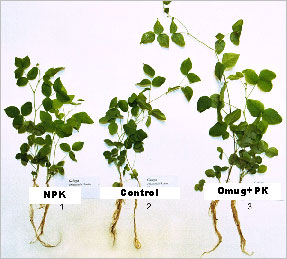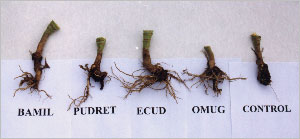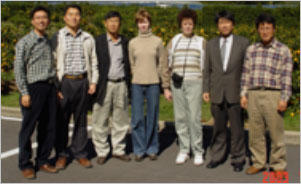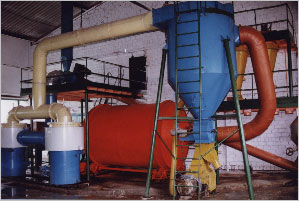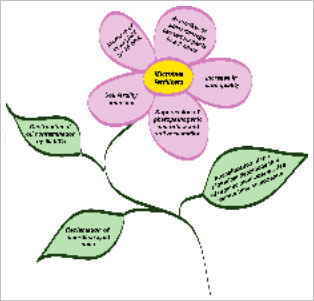
|
|
 |
Home |
 |
|
 |
About |
 |
|
 |
Publications |
 |
|
 |
Partners |
 |
|


|

|
Laboratory of Microbial Ecotechnology
In 1981 by the initiative of O.A. Berestetskiy, Director of the Institute, a team for livestock manure utilization was formed under the leadership of I.A. Arkhipchenko to solve the problem of microbiological treatment of livestock manure. In 1989 the team was successfully transformed into a laboratory of Microbial Ecotechnology. The laboratory staff contains 12 specialists: one Professor of Biological Sciences, two Doctors of Biological Sciences, three Ph.D. students, engineers and technicians. Scientific field of research is a combination of various subjects: microbiology, biotechnology, agrochemistry, soil biology and ecology.
Main scientific interests of the laboratory include:
Such famous scientists and microbiologists as Prof. I.L. Rabotnova, academicians E.N. Mishustin and G.A. Zavarsin played a great role in the formation of the laboratory field of research. A series of experiments working out the ways to intensify the operation of treatment installations at large pig farms has been conducted at the laboratory. The experiments were based on an ecological and physiological principle for the evaluation of microbial communities functions in artificial ecosystems. Application of this approach made it possible to reveal and remove factors limiting microbiological oxidation of organic waste. On the basis of the research, new techniques intensifying the operation of treatment installations at "Vostochnyi" pig farm have been designed and the energy consumption has been reduced. Peculiarities of microbocenosis in aerotank active sludge have been studied. The Atlas of active sludge biocenosis structure under various technological regimes at treatment installations has been compiled, which enables carrying out express evaluations of treatment system operational regimes.
Another important problem the laboratory deals with - it is the development of theoretical basement for biotechnology of livestock, poultry and municipal waste treatment in order to develop both biofertilizers for sustainable agriculture and soil mixtures for landscape and park design. Theoretical grounds to control the activity of microorganisms under aerobic decomposition of organic waste have been developed at the laboratory, allowing to form microbial communities with given physiological activities and control microorganism metabolism and substrate decomposition level. Theoretical research in this field made it possible to develop an original approach to create technological schemes for microbiological treatment of organic waste different in content and origin. A method for the production of a physiologically active microbial association with high nitrogen and phosphorus content has been developed and patented. The association serves as a basis for "Bamil" biofertilizer production. In 1998 at the contest of scientific developments of the Russian Academy of Agricultural Sciences "Bamil" was awarded Premium II having been marked as the best-accomplished work. Experimental workshop for the production of microbial fertilizers has been constructed. A wide range of field and greenhouse tests have been carried out and recommendations for the application of fertilizers have been developed aimed at high quality yield increase: by 80-100% in field and by 15-25% in greenhouses.
Scientific research in the field of studying microbial transformation of poultry dung and municipal waste has been carried out. Experimental lots of biofertilizers and composts, which gained a wide recognition among gardeners and farmers, have been produced. Results obtained by the laboratory can serve as a basement for the development and application of new types of microbial fertilizers from different organic waste. Microbial fertilizers are characterized by high content of main bioorganic elements and useful microflora possessing plant growth promoting properties and antagonistic action against phytopathogenic fungi. They are polyfunctional fertilizers combining useful properties of mineral and organic fertilizers. Theoretical ground for the application mode of microbial fertilizers to increase biological activity of soil cenosis has been created. Methods for the application of microbial fertilizers for soil reclamation and remediation of oil-contaminated soils have been worked out. These research results were introduced into practice in the South Czech and awarded Golden medal of the Czech Republic. Microbiological association capable for oil destruction in soil cenosis has been isolated at the laboratory. Experimental lots of the association composition have been successfully tested in the Usinsk Region and in the North-West of Russia under the support of JSC "Lukoil". Introduction of the association ensures oil decomposition by 60-80% during 2-3 months (even in areas with cool summers) and reclamation of soil biological activity. The result can be considerably intensified if the association is applied together with organic substrate - microbial fertilizer from animal waste ("Bamil" or "Omug"). Then soil remediation can be accomplished in a shorter period and with better results. In addition, a collection of microorganism cultures improving the properties of fertilizers produced by fermentation from organic mixture of waste and sawdust has been created. Microorganisms intensify decomposition of less available organic substances, provide for nitrogen bounding and decrease nitrogen losses, and promote plant growth properties of fertilizers. A collection of typical bacterial cultures capable for decomposition of complex organic compounds has been created. A complex method for the evaluation of microbial community activities in biocomposts and biofertilizers aimed at their standardization and certification has been developed. The method can serve as a criterion to evaluate the quality and efficiency of fertilizers. The laboratory enjoys well-developed scientific contacts with specialists from Holland, Finland, Czech, Sweden and other countries. Joint research under International projects and grants, as well as conferences and workshops, are constantly carried out. Young scientists and Ph.D. students of the laboratory regularly go abroad for trainings and scholarships. Research developments of the laboratory were implemented into practice at the largest pig farms of Russia (for optimization and intensification of treatment installations); at poultry farms of the Leningrad Oblast; at oil extracting company "Lukoil" for remediation of oil-contaminated soils; at greenhouse firms "Leto" and "Vyiborzhets" (Saint-Petersburg); at Experimental plant for municipal waste treatment to produce high quality composts and soil mixtures (Saint-Petersburg); at "Phart" firm to produce soil and peat mixtures, etc.
© 2004-2009 All-Russia Research Institute for Agricultural Microbiology |
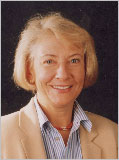 Irina A. Arkhipchenko,
Irina A. Arkhipchenko,